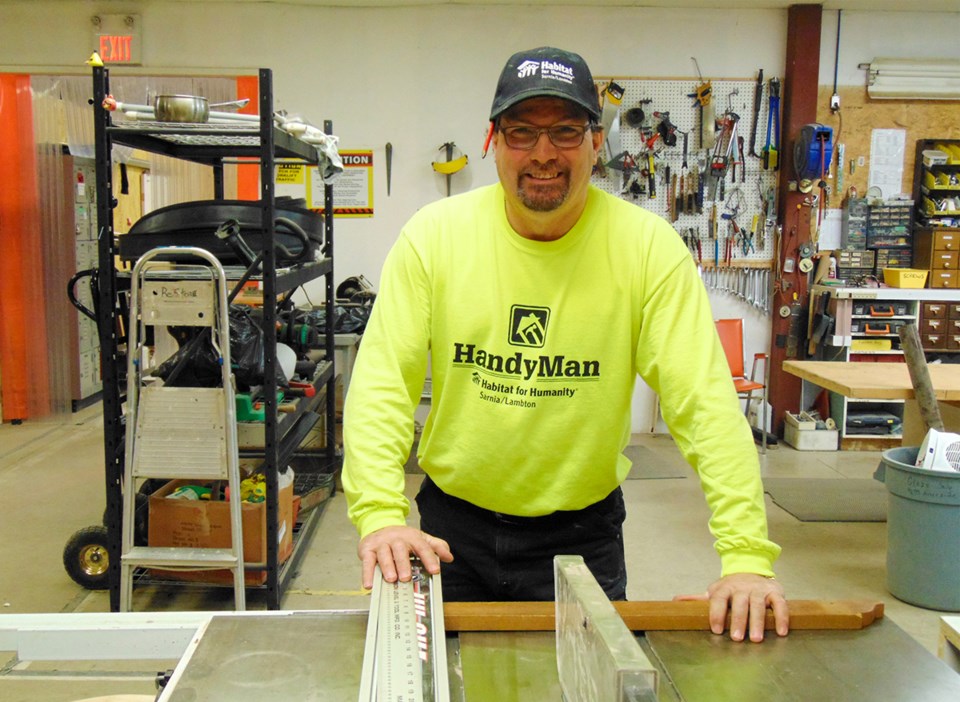 You might not associate Habitat for Humanity with business, but the non-profit’s growing HandyMan program operates very much like one.
You might not associate Habitat for Humanity with business, but the non-profit’s growing HandyMan program operates very much like one.
It’s a social enterprise that generates hundreds of thousands in revenue annually, employs three people, engages the help of dozens of volunteers, and channels the earnings into Habitat’s home building program.
Everything from big jobs like new decks and cabinetry, to small tasks like wall painting and pressure washing are available. Low-income earners pay a subsidized price while everyone else pays standard industry rates.
“It’s definitely not about making a buck,” said Habitat CEO Dave Waters. “It’s a way for us to help more families.
“There’s a real need in our community for this. Most people in the industry don’t want to do the work we’re doing. The jobs are generally too small.”

Habitat introduced its HandyMan program in 2016 and had 60 clients the first year. Initially, it was a subsidized service to help low-income earners.
But almost immediately it became evident the program couldn’t sustain itself, so Habitat broadened the mandate to include customers able to afford fair market prices.
Some clients prefer new materials for projects while others purchase building supplies from the Habitat ReStore, which helps support the non-profit even more.
The expanded mandate has proven successful, and last year the HandyMan program took on 139 projects. About half received discount pricing after providing proof of income.
This year is shaping up to be the busiest yet. Waters predicts at least 200 families will be served.
Applications have doubled since Oct. 31 when the Lambton Seniors Association shut down its handyman program.
Waters can’t draw a clear line between that cancellation and Habitat’s growing numbers but suspects they’re related.
“In late 2019, we had a big influx of applications,” he said. “We might have had 10 or 15 a month before but now we’re getting 30 a month.”
That led to a third paid Handyman position and a need for more volunteers. Anyone who wants to volunteer can contact Habitat for Humanity Sarnia-Lambton at 519-339-7957 or www.habitatsarnia.org.
The same number can be used to get a project quote.
Volunteers don’t necessarily require much experience. They are supervised by skilled workers and can be trained on the job.
Like the volunteers who assist with Habitat home builds, HandyMan volunteers can find themselves doing drywall, landscaping, roofing garages and installing siding.
Waters has noticed more applications for larger renovations but there’s still a demand for small jobs like picture hanging and installing accessibility equipment.
Those who qualify for subsidy can sometimes get the work done for half the commercial rate, he said.
Free deconstruction is also a focus of Habitat, which is always looking for old kitchen cupboards, windows, doors and other building material being discarded. Habitat crews will systematically dismantle all or part of a house in order to reuse, recycle or repurpose them.
Revenue from the Sarnia-Lambton ReStore at 1787 London Line supports the organization’s core mandate of building new affordable housing for local families.
Got a great idea for a business story? Send it to [email protected]
